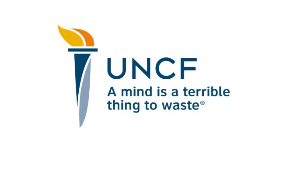
Event Highlights – Day 2
Bloomberg Equality Summit
Modern Leaders & Allies
By Bloomberg Live
As the next generation of employees enters the workplace, bringing their own voices and views to issues around workplace equality, we convene global leaders on the front lines of health care, education, wealth, technology, government and business to talk about the next phase of oversight and accountability. Who are the agitators charting a new and faster course to achieve equity and change across business and society? What tough discussions are necessary to create sustainable change in a pandemic-led recovery? We’ll explore these and other pressing issues as we get in front of activist investors, global CEOs and policymakers facing unprecedented challenges on multiple fronts, from labor shortages to supply-chain bottlenecks and return-to-office dilemmas.
Click here to view video of Session 3, Modern Leaders & Allies.
Click here to view video of Session 4, Modern Leaders & Allies.
Speakers included:
- Ramsey Baker, Principal, Boston Consulting Group
- Dame Inga Beale, Chair, Mediclinic International
- Barbara Ann Bernard, Founder & CIO, Wincrest Capital
- Michael R. Bloomberg, Founder, Bloomberg LP and Bloomberg Philanthropies, 108th Mayor of New York City
- Suzanne Donohoe, Partner & Global Head of Strategic Growth; Co-Chair, Inclusion and Diversity Council, KKR
- Paul Donovan, Chief Economist, UBS Global Wealth Management
- Tariq Fancy, Founder & CEO, The Rumie Initiative
- Kathryn Finney, Founder & CEO, Genius Guild, General Partner, The Greenhouse Fund
- Jim Fitterling, Chairman & CEO, Dow
- Beth Ford, President and CEO, Land O’Lakes
- Rebecca Hall, Writer, Director, Producer and Actress
- Blair Halliday, Head of UK, Gemini
- Reid Hoffman, Co-Founder, LinkedIn, Partner, Greylock
- Patrick J. Kennedy, Former U.S. Representative, Founder, The Kennedy Forum
- Asma Khan, Chef & Owner, Darjeeling Express
- Karin Kimbrough, Ph.D, Chief Economist, LinkedIn
- Matt Krentz, Managing Director & Senior Partner, Diversity, Equity, & Inclusion and Leadership, Chair, Boston Consulting Group
- Pippa Lamb, Partner, Sweet Capital
- Nadiem Makarim, Minister of Education, Culture, Research and Technology, Indonesia
- Raymond J. McGuire, Former NYC Mayoral Candidate, Former Vice Chairman, Citigroup
- Deidra R. McIntyre, Founding Admin, Black People & Cryptocurrency
- Rhonda Morris, Vice President & Chief Human Resources Officer, Chevron
- Laura W. Murphy, President, Laura Murphy & Associates LLC
- Kirsten Xu Olesen, Project Leader, Boston Consulting Group
- Salil Parekh, CEO & Managing Director, Infosys
- Verdun Perry, Global Head, Blackstone Strategic Partners
- Henri Pierre-Jacques, Managing Partner, Harlem Capital
- Christopher Rauh, Ph.D., Assistant Professor, University of Cambridge
- Maria Ressa, Co-founder & CEO, Rappler, Nobel Peace Prize Laureate
- Suki Sandhu OBE, Founder & CEO, Audeliss and INvolve
- Sonal Shah, President, The Asian American Foundation
- Sebastian Siemiatkowski, CEO, Klarna
- António Simões, CEO of Santander Spain & Regional Head of Europe Banco Santander
- Shundrawn Thomas, President, Northern Trust Asset Management
- Elliot Vaughn, Managing Director & Senior Partner, Global Leader of Pride@BCG, Boston Consulting Group
- Rosalia Vazquez-Alvarez, Econometrician & Wage Specialist, International Labour Organization
- Shawn Wilkinson, Founder & Chief Strategy Officer, Storj
- Ryan Williams, Co-founder & CEO, Cadre
- Jerry Yang, Founder, AME Cloud Ventures, Co-founder, Yahoo!
- Paco Ybarra, CEO, Institutional Clients Group, Citigroup
Bloomberg Participants:
Haslinda Amin, Anchor, Bloomberg Television
Sonali Basak, Financial Correspondent, Bloomberg
Shartia Brantley, Deputy New York Bureau Chief, Senior Editor, Bloomberg Live
Lizzy Burden, U.K. Economy Reporter, Bloomberg News
Emily Chang, Anchor, Bloomberg Television
Manus Cranny, Anchor, Bloomberg Television
Ruth David, Deputy London Bureau Chief and Senior Reporter, Bloomberg
Scarlet Fu, Anchor, Bloomberg Quicktake
Caroline Hyde, Anchor, Bloomberg Television
Stacy-Marie Ishmael, Managing Editor, Bloomberg
Mallika Kapur, Deputy Global Editor, Bloomberg Live
Cynthia Koons, Senior Reporter, Health Care, Bloomberg
Madeleine Lim, Senior Executive Editor, Bloomberg
Carol Massar, Anchor, Bloomberg Businessweek TV and Radio
John Micklethwait, Editor-in-Chief, Bloomberg
Mark Miller, Global Editor, Bloomberg Live
Sasha Qadri, Senior Programming Director, Bloomberg Live
Karen Toulon, Equality Chief Correspondent, Host, Black in Focus, Bloomberg
Event Highlights:
A Corporate Response to Ending Anti-Asian Violence
Twenty-three million Asian Americans live in the US, many in poverty, and now, with the added discrimination from COVID-19 misconceptions. Targeted hate crimes rose 73-percent last year, compared with 13-percent overall.
A quick response was needed, said Sonal Shah, President of The Asian American Foundation launched this past May. Its objectives include education about this fastest-growing minority group and their issues, and corporate investment. They also have boots on the ground with the first of planned action centers in New York, Oakland and Chicago, where they partner with government and business on data collection, access to services, prevention and response.
Jerry Yang, Founder, AME Cloud Ventures, Co-founder, Yahoo! said there is false assumption of wealth, resulting in this population being underserved and overlooked in the giving landscape. “It’s an interesting time because we’re motivated by the anti-Asian hate crime, but also really gratified by the unity and solidarity.” Yang said data collection is essential, but cautioned against efforts stalling there, calling for it to be translated into insights, followed by action.
The Agitators: ESG in the Limelight
Global sustainable mutual fund assets hitting a new record in the second quarter, with combined assets of $2.3 trillion. By 2025, ESG assets are predicted to make up a third of global assets. Still, stakeholders advocate for corporations to do better, and today’s speakers called for reform of what has become a placebo.
“I believe ESG needs to be disrupted. I believe in ESG 2.0, said Barbara Ann Bernard, Founder & CIO at Wincrest Capital. “It needs to be about materiality and authenticity, and that’s the portfolio that sits at the intersection of profit and purpose.” It was a way for managers to tick the ESG box without changing their passive investment strategy, and with 70-percent of ESG money invested, there needs to be an investor transition, she said.
While Bernard said change can come from the bottom, Tariq Fancy, Founder & CEO, The Rumie Initiative, said the biggest change will come from government regulations.
A new format for civil rights audits was created by Laura Murphy & Associates LLC. She said, “It’s time for the platitudes to end.” She wants the social aspect to be remembered, and that it’s about more than diversity. “It’s about making sure your products aren’t harming people,” Murphy urged.
Government action follows social movement, Murphy said. “Storm clouds are brewing. A smart company will get ahead of the storm and hold themselves out as leaders in this area.”
Keeping Corporate America Focused on Racial Equality
“In order to be equal, you have to be better,” Raymond J. McGuire, former NYC Mayoral Candidate, former Vice Chairman, Citigroup, summed up the status of equality in business. When it comes to tangible ways to move the needle, he stressed the need for a complete overhaul of the education system, along with workforce training, which can lead to economic and social justice. “We need to give our kids some sense of hope.” Climate and wealth gaps are two existential crises that cannot be ignored, McGuire added.
Ryan Williams, Co-founder & CEO, Cadre said action and accountability is crucial, noting that only a small portion of the $49.5 billion in commitments made in the wake of the George Floyd murder were spent. He is not sure a movement has been created.
The World’s Top Business Cities Are Still Failing Working Women
In cities like Singapore, Dubai and Hong Kong, gender pay gaps are not sufficiently addressed because the data is flawed, according to Rosalia Vazquez-Alvarez, Econometrician & Wage Specialist, International Labour Organization. “Surveys are not designed to capture everyone,” she said, explaining that inherent gender bias means domestic workers (women) are not counted because they are not considered part of a household or the workforce. There are places where progress is being made, such as Switzerland, which requires gender audits to access public procurements. But since the early 1990s, when women made inroads into male-dominated labor markets, little has changed.
Impact of the Pandemic on Women in the Workplace
Women took a big employment hit because of the impact on the type of work they predominantly do on a global basis. The pandemic also revealed the reality of their disproportionate responsibility for child care, said Karin Kimbrough, Ph.D, Chief Economist, LinkedIn.
Christopher Rauh, Ph.D., Assistant Professor, University of Cambridge said the child care situation is the main reason women are not returning to the office at the same pace as men. Not being “in the room” can stall career progression.
On the upside, Kimbrough said workers are “flipping the script.” They are demanding more accommodations, and employers are being responsive.”
Reimagining Our Approach to Wellness and Mental Health in the Workplace
Discussion focused on employer responsiveness to worker issues, extending mental health benefits to families and teletherapy.
Patrick J. Kennedy, Former U.S. Representative, Founder, The Kennedy Forum said teletherapy was very successful, in part because of the relaxation of some regulatory restrictions. It should remain, driving down the overall cost of healthcare, with a curated approach of matching diagnoses with providers for specialized care. “People need to demand that it continue,” he said, advocating for starting with a focus on children to create a successful model.
A constant dialogue is needed to stay on top of employee needs, said Rhonda Morris, Vice President & Chief Human Resources Officer, Chevron, which has offered employee assistance programs for 52 years. Its workforce kept going through a stressful pandemic, remotely or onsite at oil rigs and refineries, and like at other companies, “They are tired. We need to help them avoid burnout.”
An Uneven Race
Asma Khan, Chef & Owner, Darjeeling Express talked about her struggle to find a London site for her new restaurant, eventually realizing the discrimination she encountered was less about her race than simply about being a woman. She also discovered that among the offenders are women themselves, who won’t fight for other women for fear of appearing weak in male-dominated settings.”If you’re in a position of power, open the door for someone. Rise above your prejudices,” she said. Khan sees herself as a crusader for the marginalized, called to inspire women, institutions and government to change. “History has shown us terrible things ended because some people were brave.”
Making Waves in Venture Capital
The panel discussed diversity in the start-up scene and how much funding is going into diverse hands.
The “slice of the pie” has actually decreased for female founders, said Pippa Lamb, Partner, Sweet Capital.
There’s been some movement, but not enough, according to Kathryn Finney, Founder & CEO, Genius Guild, General Partner, The Greenhouse Fund, who spoke about the effects of the George Floyd murder, calling it “more of a marketing reaction.”
Henri Pierre-Jacques, Managing Partner, Harlem Capital, said it remains a fact that minority founders have to always question if they will get funding while majority groups never have to ask the question.
Is there pushback against “minority funding” for fear of being labeled? Lamb said many label themselves as an entrepreneur and are working to solve relevant problems they have faced themselves.
Averting a Lost Generation
Nadiem Makarim, Minister of Education, Culture, Research and Technology, Indonesia offered a comprehensive picture of the struggles and future plans for education in Indonesia, where education was set back an estimated eight months or more due to the pandemic. Much of that is based on the lack of Internet or sufficient bandwidth in many areas. Makarim said remote learning is never going to be the answer to a good education.
He described some silver linings that are mostly about a wake-up call for government, along with improved technology use, parental involvement and the need for streamlined, flexible curriculum to not just catch up but to move forward. “We are working toward a skills-based educational system and inspiring children to want to learn for the rest of their lives.”
A Focus on Gender Equality and Advancement
Salil Parekh, CEO & Managing Director, Infosys, related how his company continues to work on paving pathways for women in the technology world. Remote working during the pandemic was a learning experience, and they strive to maintain the flexibility that proved to increase productivity, and at the same time, to help employees avoid burnout. Parekh pointed to the company having met its net zero emissions goal as inspiration for increasing female employees from the current 39-percent to 45-percent by 2030.”It’s about being committed to what we believe in.”
Race, Identity and Privilege: In Conversation With Rebecca Hall
Rebecca Hall, Writer, Director, Producer and Actress spoke of creating the Netflix film “Passing,” based on a book that put into context her mixed and then-mysterious racial background. After many unsuccessful pitches, she learned a lot about the struggle, in particular, that “a film about the emotional life of two Black women was not commercial enough.”
It prompted major conversations and revelations within her family, and she is hoping it will have the same sort of widespread impact. “Ultimately, it’s about how we negotiate our own identity and how much freedom we have in that.”
Hollywood’s Call to Action on Inclusion
Panelists spoke to a real movement happening, not just a moment, not just creating opportunities, but provoking systemic change; breaching creative, cultural and content barriers.
Producers need to be empowered to hire diversely, said Moira Griffin, Producer, “Slow Pulse,” adding that the stories that are being told about people of color, that could signal systemic change, have not shifted.
Award-winning Writer and Director, Zoey Martinson said it’s about reflecting diversity in surroundings. Working in New York City, she aims to build film crews that resemble the city. On changing mindsets, she said stories about the Black experience have that power, especially comedy, which pulls people in so they become less “other.”
A glimpse of P&G’s Widen the Screen initiative was offered by Damon Jones, Chief Communications Officer, who said as one of the world’s biggest advertisers, the company aims to be responsible about its influence. The project backs content creators in TV, film and advertising, including films by Black women with relevant stories to tell. Around the George Floyd issue, four films have been created to “turn pain into progress.”
Martinson wrapped it up with, “Hire people of color, give them power and step out of the way.”
Bloomberg Equality Summit is Proudly Sponsored By
Solutions Sponsor
Solutions Sponsor
Presenting Sponsors
Presenting Sponsor
Supporting Sponsor
Presenting Sponsor
Presenting Sponsor
Community Partners
Presenting Sponsor
——————————
Join the Conversation: #BloombergEquality
Instagram: @BloombergLive
LinkedIn: Bloomberg Live
Twitter: @BloombergLive
Interested in more Bloomberg Live virtual events? Sign up here to get alerts.
——————————




